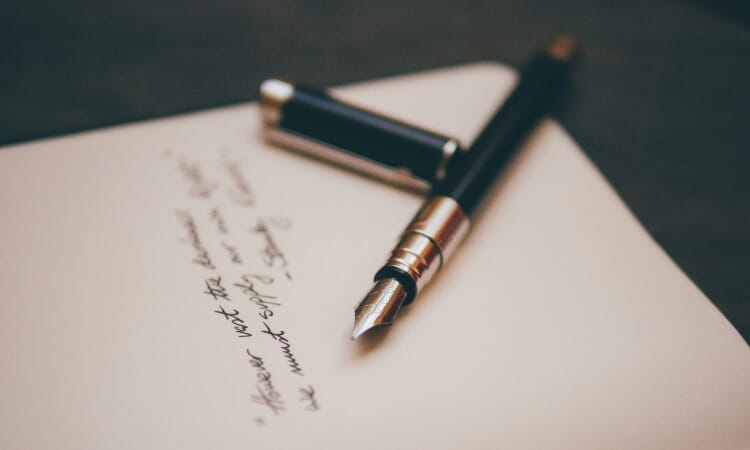Meet Tug: 2023 Bruce Dawe National Poetry Prize Winner

Poet Tug Dumbly won the University of Southern Queensland’s (UniSQ) 2023 Bruce Dawe National Poetry Prize with heartfelt poem inspired by a nostalgic memory from his childhood.
Rich with inspiration, imagination and reminiscence, ‘Arvening’ was a poem many years in the making and formed one of over 1000 entries from 650 poets in the 2023 competition.
When it comes to describing literary works, we know only the poet can do it justice – so we asked Tug a few questions about his creative process, motivation and passion for the written word.
What was the inspiration behind your work, Arvening?
For a shortish poem, Arvening has a long history. The initial inspiration was a memory of me as a boy watching, unobserved, my mother at the kitchen sink. At least I thought so. I came to be unsure during the writing if this was even a true memory, or some scene from my imagination. But I think the deeper you get into writing a poem the less important the actual 'truth' of events that trigger it becomes. Anyway, something in this image of the boy watching his mother persisted, and wanted to be teased out, and some combination of inspiration, imagination and memory took it from there.
I wrote the initial version of the poem maybe 6-7 years ago. I'd love to say it all flowed out in an effortlessly natural way – and maybe the bulk of the poem did come quickly. But over the years, I made literally dozens of edits to it. I'd think at last it was finished, put it aside for a while, then re-find it and realise something still wasn't right or not as good as it could be. Words needed to come and go, be re-tensed, re-arranged; stanzas and line breaks had to be tweaked. But it was mostly a case of trimming words to get the flow and emotion right. (It's nearly always about whittling a poem, not adding!) At last the poem found its final form. Or at least I accepted that I couldn't do anything further with it. As Paul Valery said, 'poems are never finished, only abandoned'. (A version of this quote is also attributed to Leonardo Da Vinci).
And that's been my experience. My poems are sometimes written quickly but can take a long time – years – to 'finish' after I think they're done. I often need time and distance to be able to assess things with a cold eye. That initial heat and love you might have for a poem needs to dissipate. You need to be able to view it with a bit of surgical indifference, maybe a little degree of contempt, be a bit brutal with it.
What did winning the 2023 Bruce Dawe National Poetry Prize mean to you?
I was thrilled, of course. It came from out of the blue. I'd woken bleary from an afternoon nap, and there was a nice short email saying 'congratulations, your poem Arvening has won the 2023 Bruce Dawe National Poetry Prize'. I re-read the email a dozen times to make sure I was getting the facts right. It was a genuine surprise because most other prizes (bless 'em all!) have a drawn-out process of long-listing, and then short-listing, before the winner is finally announced. So you know with those prizes if you're in the running. But none of that fiddling around with this one! Nope! It's just 'hey, you've won!' On top of that, I genuinely love Bruce Dawe's work. It's a prestigious and respected prize to win. It's been a validating thing to me and boosted my self-belief and confidence in my work enormously.
Tell us about your love for poetry. Why is it such an important tool for expressing emotions and creativity?
I started as a performance poet and still love performing live. So the stage is what I first wrote for, as well as radio. In the last 10 years or so I've turned to writing mostly for the page – to be read, rather than seen and heard live. The page form is generally a more subtle, nuanced type of poetry, though not always. But whatever forum you're writing for, stage or page, to me it's all about communicating with people, whether through humour or tragedy or some point in between. You know all the reasons you love poetry, right? Whether it's writing it, reading it, or both. (And to write it, you should read a LOT of it). Poetry is tight and unlikely collisions of words, ideas, images. Little explosions, fresh pictures in the head. Auden called it 'memorable speech'. Poetry is a way to talk to and with people, to move them. Yes, 'ways to move'. That's largely what it is for me. It seems important to me that I share my world view, macro and micro, help try and make sense of life, to myself and others. Plus poetry is pretty portable. It's cheaper and more convenient than making paintings, plays or films, though not always easier. It's also a sanity valve for me, self-therapy. Poetry gives me an honest place in the world. I can live for a couple of weeks on the clean air of a new poem that I think I've written well.
The Bruce Dawe National Poetry Prize honours the enormous contribution UniSQ Emeritus Professor Bruce Dawe AO made to Australian poetry and ensures his legacy will endure for years to come.


